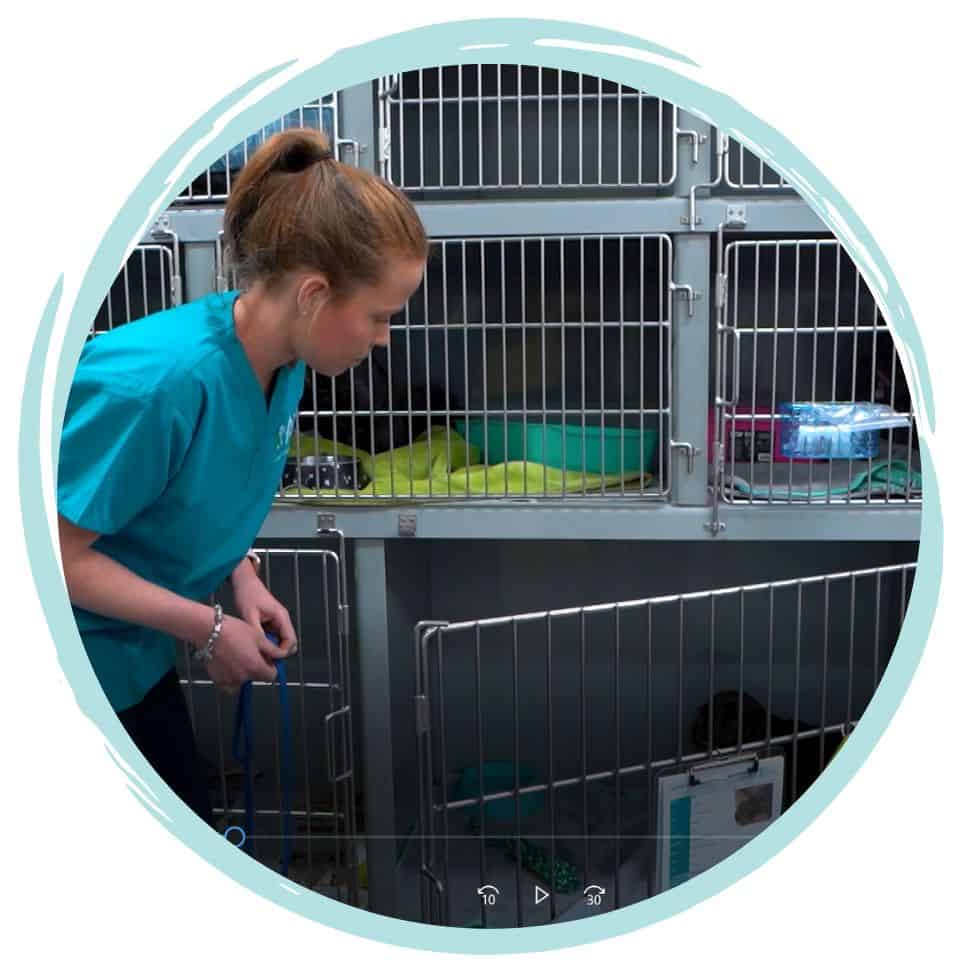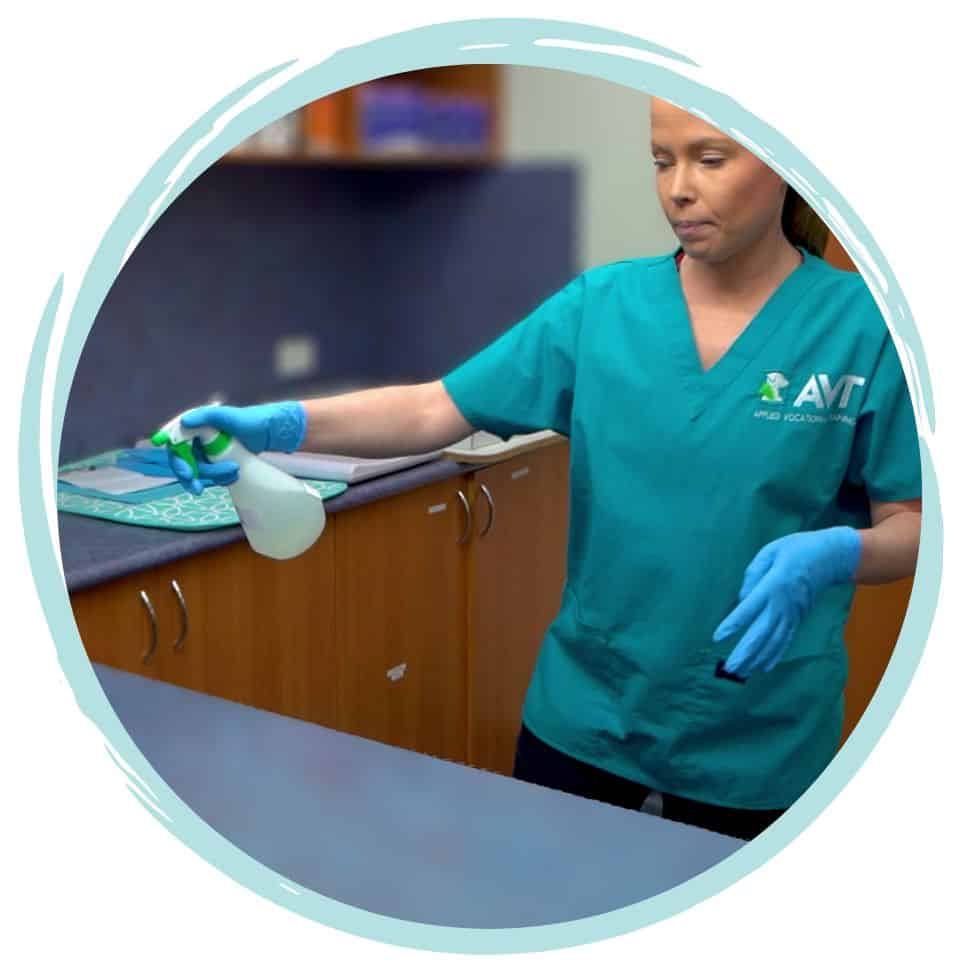If you have a passion for animals and want to turn your passion into a career, you might consider a career working with animals. One of the most popular roles in animal care is an Animal Attendant also referred to as a Kennel Hand, Animal Assistant or Animal Carer. Animal Attendants work across a variety of pet-related businesses and organisations and undertake a range of tasks to assist in the care and well-being of a variety of animal species. In Australia, the animal care industry is booming as our community embraces pet ownership and places more priority and compassion on the way animals, including wildlife are respected and cared for. As a result, the job market for animal care positions such as Animal Attendants and Carers is thriving.
What does an Animal Attendant do?
The main purpose of an Animal Attendant is to take care of the day to day needs of animals. This includes:-
- Food preparation and feeding duties
- Cleaning the environment in which animals live including cages, pens, yards, enclosures, etc
- Cleaning and grooming animals
- Exercising and providing enrichment for animals
- Assisting with rehabilitation programs for animals
- Assisting with animal training and socialisation
- Administering first aid treatment and care
- Assisting other professionals such as veterinarians to help with the treatment of animals
- Administering medication
- Maintaining animal health records

How to become an Animal Attendant
So where do you start your journey to becoming an animal attendant? If you are thinking about a career as an Animal Attendant, there are a number of things you can do to enhance your prospects of securing work in the animal care industry. Here are five top tips to help you become an Animal Attendant in Australia:
1. Get experience by volunteering
When seeking a job as an Animal Attendant, one of the most sought after skills employers will be seeking is previous hands-on experience working with animals. One of the best ways you can get hands-on experience is by volunteering. Volunteer work plays a vital role in the industry, especially in the areas of animal welfare, animal rescue and shelters, conservation and rehabilitation across a range of species. If you are eager to find out what it is like to work with animals, we highly recommend volunteering. It is a great way to acquire basic animal handling skills if you have no prior experience. It will also give you an opportunity to find out if working with animals is for you.
2. Take an active role in animal care
When you interact with animals on a regular basis you will quickly learn about their needs, behaviours and their unique personalities. You will also gain more confidence in handling animals as well as reading and understanding their body language. If you are considering applying for a job as an Animal Attendant or even starting a course in Animal Care, we recommend playing an active role in the lives of your family pets. If you don’t have a dog or a cat, or any other kind of pet at home, you can offer to help out a friend or neighbour who has a pet. Types of activities you can assist with include dog walking, day to day care including feeding, grooming and cleaning and basic training duties.
3. Find out if you have the qualities to be an Animal Attendant?
In most cases, Animal Attendants work as part of a team of people. Animal care teams are often faced with challenging and sometimes stressful situations. For this reason, you should possess good interpersonal and communication skills, be an effective team player and have a positive outlook on life.
The day to day tasks involved with caring for animals can also be physically demanding. For this reason, we recommend being an active person who is capable of lifting at least 10kg.
You will also need to be tolerant of animal hair, fur and feathers so, it is a good idea to find out if you have any allergies before committing to an employer or course provider.
Do you live in WA?
Are you a job seeker?
Find out about our subsidised* course in Animal Care based at the Cat Haven and the Dogs’ Refuge Home.

4. Consider the employment opportunities for Animal Attendants
You will soon learn an Animal Attendant’s role is one of the most rewarding careers you can find. You can start working with animals and train academically to become highly skilled in this field. There are various career options, from casual attendants through to veterinary professionals and business owners that earn over $80k per year depending on their skillset and education. This field of work offers great employment opportunities for both young and old animal lovers.
Before you take your next step towards your career, it is a great idea to consider the employment opportunities ahead. These range across a number of animal care facilities including:
- Boarding kennels
- Catteries
- Shelters and rehabilitation centres
- Zoos, wildlife centres and conservation parks
- Veterinary practices
- Doggy Daycare and other daycare facilities
- Dog behaviour and training businesses
- Groomers
- Pet shops
- Equine facilities such as horse stables, agistment centres
- Farms

5. Find out what qualifications are needed to become an Animal Attendant
Whilst you can commence your career without a formal qualification, employers are more frequently seeking qualified staff with practical experience. You can kick-start your career by getting a qualification in animal care. Start with a nationally accredited entry-level course such as ACM20121 Certificate II in Animal Care or further vocational training such as ACM30122 Certificate III in Animal Care Services. Both courses combine theory with practical training and will give you the underlying knowledge required for employment and a long-lasting career in animal care.
Take a course in Animal Care
Choose a course
Follow your passion and get a dream job!
About Our Courses
Choose from our range of courses
Get started
ACM20121 Certificate II in Animal Care (Online)
Studying Online
Animal Care Online Course
*Fees, inclusions and payment plan amounts are subject to change. Additional fees may apply such as student service and resource fees. Eligibility criteria applies. See Course page for full details.









